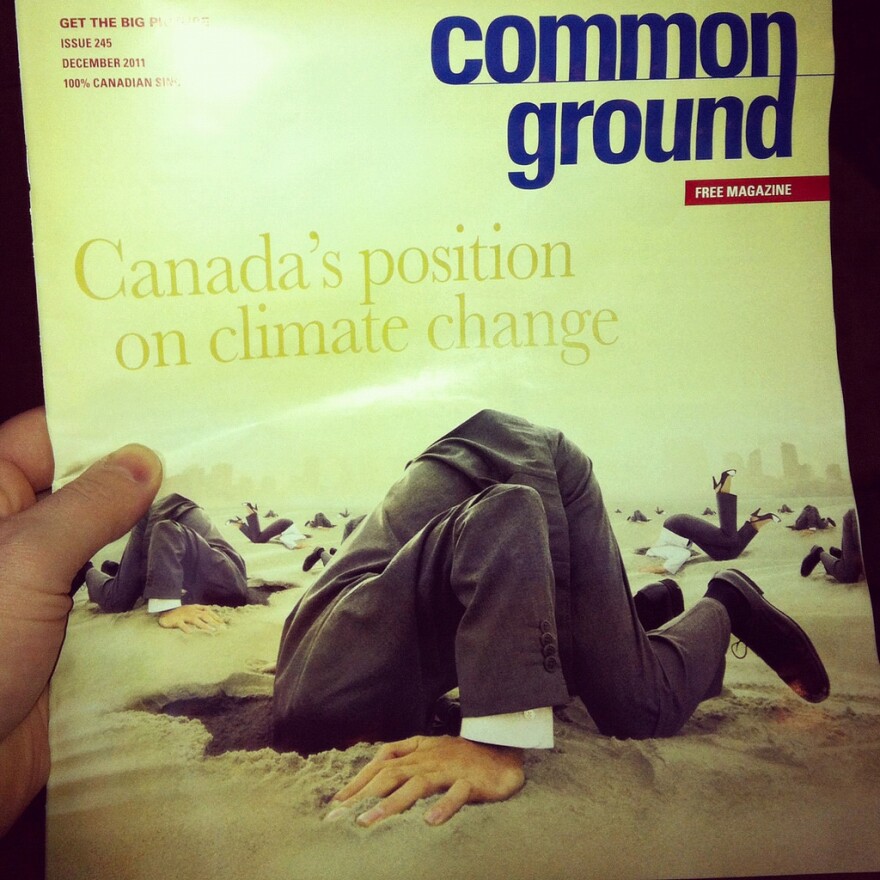New research finds people often stay quiet when it comes to talking about climate change.
It’s not because they’re afraid of being disliked.
A study published in the Journal of Environmental Psychology found that people avoid bringing up the subject for two main reasons:
1) People underestimate how much other people care about the subject.
2) People feel like they don’t know enough about the science of climate change to hold a discussion.
Janet Swim and Nathaniel Geiger of Penn State University co-authored the study. They looked at how 305 Penn State students might discuss the topic among their peers.
They confirmed that something social psychologists call “pluralistic ignorance” was at work.
It’s a common fallacy many of us engage in by assuming we know what other people are thinking.
Listen to Swim describe how pluralistic ignorance can lead to false assumptions when it comes to reacting in emergency situations, confronting sexist remarks, drinking on college campuses, and asking questions in class:
The researchers found the same behavior at work when it comes to discussing climate change. When students were told their peers cared less about the subject, they were less likely to bring it up.
Swim says the reason students were less likely to discuss climate change was because they lacked confidence.
“It wasn’t that they would be seen as some aberrant person or that people wouldn’t like them” Swim said, “It was because they didn’t think they knew enough about climate change to talk about it.”
She says helping people understand the basic science of human-caused climate change will go a long way in fostering more conversation about the topic. One way to learn more, she says, is to simply speak up – and ask more questions.
More from their study:
Our findings advance the theoretical understanding of self-silencing, showing that with regard to this topic, pluralistic ignorance hinders discussions because individuals expect to be respected less by a dissenting audience, rather than expectations of being disliked by those who disagree.








